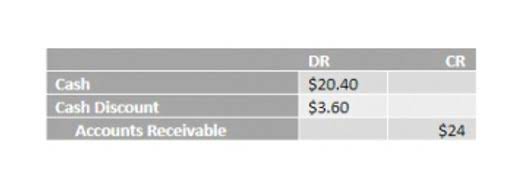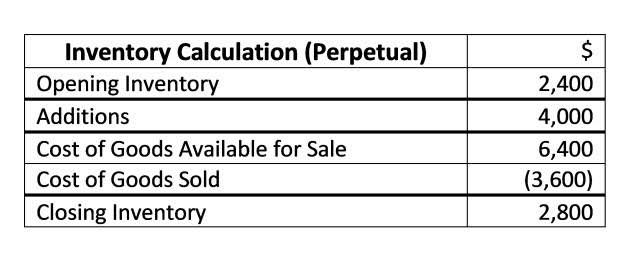
Bookkeeping should be updated regularly (daily or weekly), while payroll is typically processed bi-weekly or monthly. Accounting and bookkeeping are 2 vastly different professions despite the similarities and blurring of roles. Hopefully, this post helped clarify these differences and similarities to remove any confusion. Even if an accountant has a degree and a certification, it doesn’t mean they are a better choice than a bookkeeper with sufficient experience. Ultimately, this is the foundation upon which your financial understanding is built.
- If you want to take an an certified accountant or any other higher profiled role like that is high bookkeeping position or a role that involves greater responsibility.
- Decimal is great if you’re looking to quickly access your business records.
- Both are essential to maintain and ensure the good financial health of a business.
- Their accurate and systematic record-keeping enables smooth financial operations and provides valuable insights for business owners and management to make informed decisions.
- Think of a bookkeeper as the person who keeps your business’s financial house in order – they make sure all the numbers add up, bills are paid, money is collected, and everything is properly documented.
Differences Between Bookkeeping vs Payroll

An understanding of bookkeeper Bookkeeping for Consultants vs accountant vs CPA will guide you on which professional to hire for your business’s financial needs. Usually, businesses rely on CPAs for auditing financial statements, handling tax planning and compliance, and ensuring financial practices adhere to regulations. Consulting a CPA can make your company’s financial practices more credible. When it comes to choosing the right financial management approach, one crucial factor to consider is the size and complexity of your business operations. Small businesses and startups may benefit from outsourcing certain financial tasks, such as payroll processing or bookkeeping, to third-party service providers.
What is online bookkeeping?
Both tasks are crucial for any business but require different skills and expertise. Explore the differences between payroll and bookkeeping and the benefits of outsourcing these services. Bookkeeping provides the foundation for your financial records, while payroll focuses on managing employee compensation. Understanding the differences between these functions can help you streamline your financial processes and ensure compliance. Whether you handle these tasks internally or outsource them to professionals, it’s crucial to have a clear understanding of their respective roles.
Monitoring Cash Flow

For example, bookkeeping allows businesses to make balance sheets and profit-and-loss reports. Accounting, payroll, and bookkeeping are all part of the same financial circle, but they support businesses in different stages of the financial cycle. A third aspect of accounting involves income tax reporting, and must be done in compliance with government regulations. Payroll software automates a large majority of your payroll program, and can calculate wages and taxes, and some even will turn in taxes for you. Many people often use the terms accounting, payroll, and bookkeeping interchangeably. Getting the most bang for your buck means that you should be happy with the services you’re getting in return for your monthly—or annual—dues.
It certifies that the workers/employees get accurate and timely wages payments and that their total wage income is tax compliant. Any business that hopes to succeed needs an accurate way of tracking its finances. It must also correctly pay employees and file payroll taxes with bookkeeping and payroll services government agencies on time. Some small business owners assume responsibility for these tasks, but they can become overwhelming as operations grow.

You can use a firm or work with accounting software for your business needs. Accountants usually need at least a bachelor’s degree in accounting or finance. Many accountants pursue further certification, such as becoming a Certified Public Accountant (CPA).
- If you’d like to learn more about identifying the best ways to improve back-office practices, contact Visory today.
- Bookkeeping and accounting have different core responsibilities, but both are essential for understanding and managing a business’s finances.
- Payroll clerks are a specific type of bookkeeper, as managing payroll is an early stage of the accounting process.
- Book keeping and payroll, in the constantly changing commercial world, are just like the backbone and heartbeat for the business to stand tall and keep doing smooth by the correct path.
- It depends on the complexity of your payroll and the expertise of your bookkeeper.
It covers payroll deductions for income tax, old age pension, Certified Public Accountant and employment insurance, alongside payroll processing and administration. A key focus is on preparing individual and business tax returns, including applying the Goods and Services Tax (GST), equipping students with practical skills for managing payroll and taxes in Canada. In conclusion, implementing effective financial strategies is essential for achieving success and sustainability in today’s competitive business landscape. Now that we’ve discussed how to choose the right financial management approach, it’s time to explore practical strategies for implementing these approaches effectively.
- Comparing these two statements helps users see overall performance and financial stability.
- It may involve issues like computing wages, deductions such as taxes and anything having to do with remunerations and their timely and correct disbursal.
- Outsourcing payroll to a payroll accounting can free up your time, and the accountant does the entire payroll process for you.
- Although the two may appear quite similar, one is used purely for warm-up while the other is an actual test that requires mastery of some skills.
- Bookkeepers sometimes do accounting tasks, such as generating financial reports from the accounting software, making journal entries for depreciation and accrued expenses, and more.
- You’ll want to look for an online bookkeeping service that will allow you to scale without repercussions.
- It covers payroll deductions for income tax, old age pension, and employment insurance, alongside payroll processing and administration.
Financial

Prioritizing both functions helps businesses stay organized, compliant, and financially stable. Every successful business needs reliable employees, and those employees need to be paid accurately and on time. This is where payroll comes in – it’s the entire process of managing employee compensation, from calculating their wages to ensuring they receive their money when expected. The Payroll and Taxation in Canada course in CCC College’s accounting diploma program provides essential knowledge of Canadian payroll and taxation systems.

Comparing Payroll and Bookkeeping: How Are They Different?
Because of the crucial human element of payroll, accountants from within HR might handle it. For example, you’ll take more out of a single earner of $100k per year than a family of four who earn $50k.. Because of this additional skill set, accountants are more likely to take on leadership roles. If you have a financial department in your company, it is most likely run by someone with an accounting background. A bookkeeper’s duties are part of the accounting cycle, an eight-stage process every business needs to follow to maintain financial compliance. The duties of a bookkeeper typically include data entry, checking their data against other documents, and producing regular reports on their company’s financial position.

